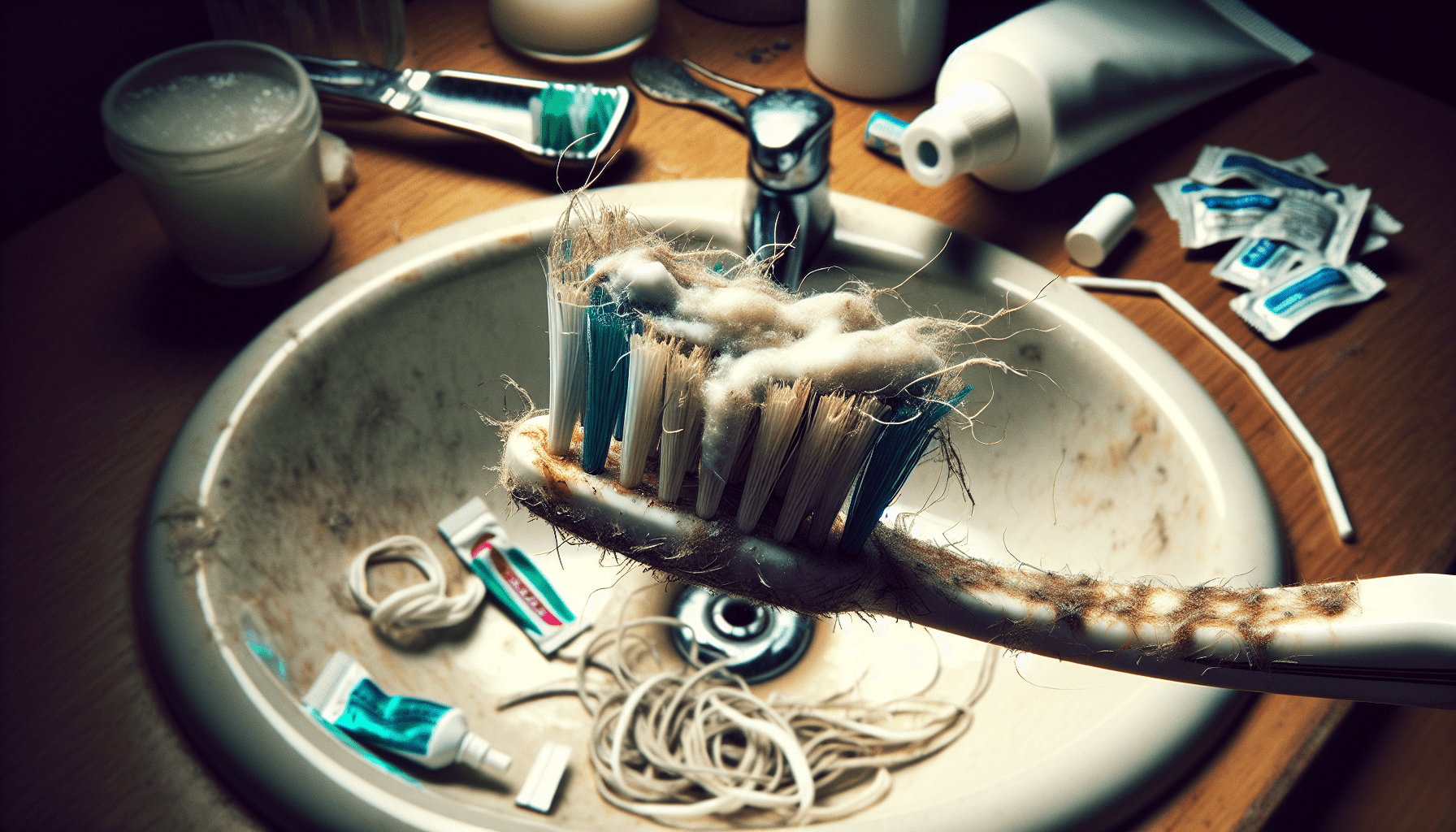What Are The 8 Risk Factors For Poor Oral Hygiene?
Hey there! Taking care of your teeth and gums is super important for your overall health, but did you know there are specific risk factors that can make it harder to maintain good oral hygiene? In “What Are The 8 Risk Factors For Poor Oral Hygiene?” you’ll discover the key elements that might be working against that bright, healthy smile. From lifestyle choices to genetic predispositions, this article breaks down what you need to watch out for and how to tackle these challenges head-on. Dive in and learn how to keep those pearly whites in top shape!
Have you ever wondered why some people seem to have such pristine smiles while others struggle with oral health issues? Understanding the risk factors for poor oral hygiene can make a huge difference in your dental health journey. Let’s dive into the eight key factors that could be affecting your oral hygiene and how you can manage them.
1. Poor Diet
Your diet plays a significant role in determining your oral health. Foods and beverages high in sugar and acid are particularly harmful, as they contribute to tooth decay and gum disease.
Effects of Sugary Foods and Drinks
Sugar is a major enemy when it comes to oral hygiene. It feeds the harmful bacteria in your mouth, which produce acids that attack your tooth enamel. Over time, this can lead to cavities and tooth decay. Are you a fan of soft drinks, candy, or even fruit juices? If so, you might want to reconsider how much and how often you consume these sugary delights.
Table: Common Sugary Foods and Their Impact
| Food/Beverage | Impact on Oral Health |
|---|---|
| Soft Drinks | High sugar content, acidic, erodes tooth enamel |
| Candy | Sticks to teeth, promotes bacterial growth |
| Fruit Juices | Contains natural sugars, but still harmful in excess |
Acidic Foods and Their Impact
Just like sugary foods, acidic foods and drinks can harm your teeth. Citrus fruits, tomatoes, and vinegar-based products might be healthy choices overall, but they can erode your tooth enamel over time. Balance is key here—making sure to consume these types of foods in moderation can help maintain your oral health.
2. Smoking and Tobacco Use
Smoking and other forms of tobacco use are disastrous for your oral health. They stain your teeth, increase the risk of gum disease, and are even linked to oral cancer.
Staining and Discoloration
Nicotine and tar from tobacco easily stick to the surface of your teeth, causing yellow or brown stains. These stains are often stubborn and difficult to remove with regular brushing. Your dentist might need to perform professional cleaning to restore your teeth’s natural color.
Increased Risk of Gum Disease
Tobacco use inhibits your mouth’s ability to fight off infections, making gum disease much more likely. This could lead to problems like receding gums, tooth loss, and even more severe conditions if left untreated.

3. Poor Oral Hygiene Practices
Even the best diet can’t save you if your oral hygiene practices are lacking. Proper brushing and flossing techniques, along with regular dental check-ups, are crucial for maintaining a healthy mouth.
Improper Brushing Techniques
You might think you’re doing a great job at brushing your teeth, but poor technique can still harm your oral health. For instance, brushing too hard or using the wrong type of toothbrush can cause gum damage and even wear down tooth enamel.
Table: Proper Brushing Techniques
| Aspect | Recommendation |
|---|---|
| Duration | At least 2 minutes per session |
| Frequency | Twice a day |
| Brush Type | Soft-bristled toothbrush |
| Angle | 45-degree angle to gums, gentle circular motion |
Neglecting to Floss
Flossing is more than just an optional extra; it’s an essential part of oral hygiene. Flossing removes food particles and plaque between your teeth that brushing alone can’t reach. Neglecting this step can lead to cavities and gum disease.
4. Genetic Factors
Unfortunately, some aspects of oral health are beyond your control. Genetic factors can make you more susceptible to cavities, gum disease, and other oral issues.
Inherited Conditions and Their Effects
If your parents had good or poor oral health, you might inherit similar characteristics. Genetic factors can influence the strength of your enamel, the shape of your teeth, and even how your body responds to bacterial infections.
Managing Genetic Risks
While you can’t change your genetics, you can be more vigilant with your oral hygiene if you know you are at a higher risk. Regular dental check-ups become even more essential, as your dentist can help spot potential issues early on.

5. Stress and Mental Health
Mental health and stress levels have a surprising impact on your oral health. High stress can lead to behaviors and conditions that harm your teeth and gums.
Bruxism (Teeth Grinding)
Teeth grinding, or bruxism, is often linked to stress and anxiety. This condition can wear down your teeth, cause jaw pain, and even lead to broken teeth. You might not even be aware that you’re grinding your teeth, especially if you do it in your sleep.
Neglecting Oral Hygiene Due to Depression
Mental health issues like depression can make daily tasks feel overwhelming, including maintaining an oral hygiene routine. If you’re struggling with motivation, finding the energy to brush and floss sometimes falls by the wayside, leading to a decline in your oral health.
6. Medical Conditions
Certain medical conditions can also affect your oral health, either directly or indirectly.
Diabetes
Diabetes is one of the most common medical conditions that impact oral health. High blood sugar levels can increase the risk of gum disease. On the flip side, severe gum disease can make it harder to control blood sugar levels, creating a vicious cycle.
Table: Impact of Diabetes on Oral Health
| Aspect | Impact |
|---|---|
| Blood Sugar Levels | Increases risk of gum disease |
| Infection Susceptibility | Compromises ability to fight infections in the mouth |
| Saliva Production | Diabetes can reduce saliva, resulting in dry mouth |
Osteoporosis
Osteoporosis affects bone density, which can extend to your jawbone. Weakened jawbones can lead to tooth loss and complicate dental procedures.
7. Medications
Medications can have side effects that impact your oral health. Dry mouth, changes in taste, and gum irritation are just a few potential issues.
Dry Mouth
Many medications reduce saliva production, leading to dry mouth. Saliva is crucial for neutralizing acids and keeping your mouth clean. A lack of it can increase the risk of cavities, gum disease, and bad breath.
Gum Overgrowth
Certain medications, especially those used to treat high blood pressure and epilepsy, can cause gum overgrowth. This makes it difficult to clean your teeth properly, increasing the risk of gum disease.
8. Age
Age is another factor you can’t control, but it does play a significant role in oral health. As you age, you may experience a natural decline in your oral health, owing to years of wear and tear.
Wear and Tear on Teeth
Over the years, your teeth undergo a lot of stress from chewing, grinding, and other daily activities. This natural wear and tear can make your teeth more vulnerable to issues like cavities and fractures.
Decreased Saliva Production
Aging often brings about a decrease in saliva production, which can lead to dry mouth. As mentioned earlier, saliva helps protect your teeth from decay and keeps your mouth clean.
Conclusion
Understanding these eight risk factors can help you take better care of your oral health. By making informed choices, you can significantly reduce the likelihood of developing dental problems. Remember, maintaining good oral hygiene is not just about keeping your teeth looking good; it’s crucial for your overall health and well-being.
Take some time to assess your lifestyle, daily habits, and hereditary factors. Armed with this knowledge, you can make the necessary adjustments to maintain a bright, healthy smile for years to come.
If you have any questions or concerns about your oral health, don’t hesitate to consult your dentist. They’re your best resource for personalized advice and care. Here’s to a healthier mouth and a happier you!
Additional Resources

It’s sending shockwaves through the worldwide dental community…
A brand new, surprisingly simple and 100% natural method you can use at home…or on the go…to put an end to bleeding gums, bad breath, throbbing cavities, and loose teeth.
At the heart of this method lies a bizarre “sugar molecule” first discovered by German scientists. Recent groundbreaking studies show that this molecule targets and disrupts the most harmful type of oral microbe… Stopping it from releasing acids that eat away at teeth and spread decay and disease.
This oddly simple “sugar hack” holds the key to never getting another cavity… Giving you and your loved ones powerful protection against virtually every dental problem, including yellow, stained and decaying teeth, gingivitis, and tooth loss… While reversing gum disease and maintaining “strong as steel” teeth for years or decades to come.
Try this tonight and see for yourself:
For details: >> Odd “Sugar Hack” Fixes Bleeding Gums & Restores Your Smile In Just Seconds Per Day







